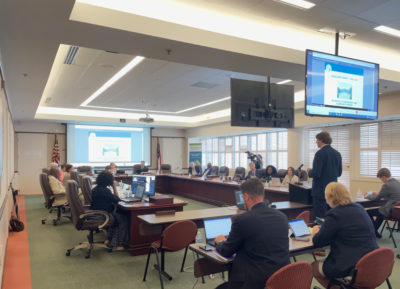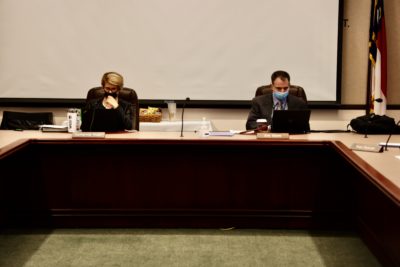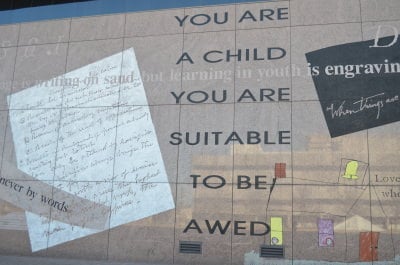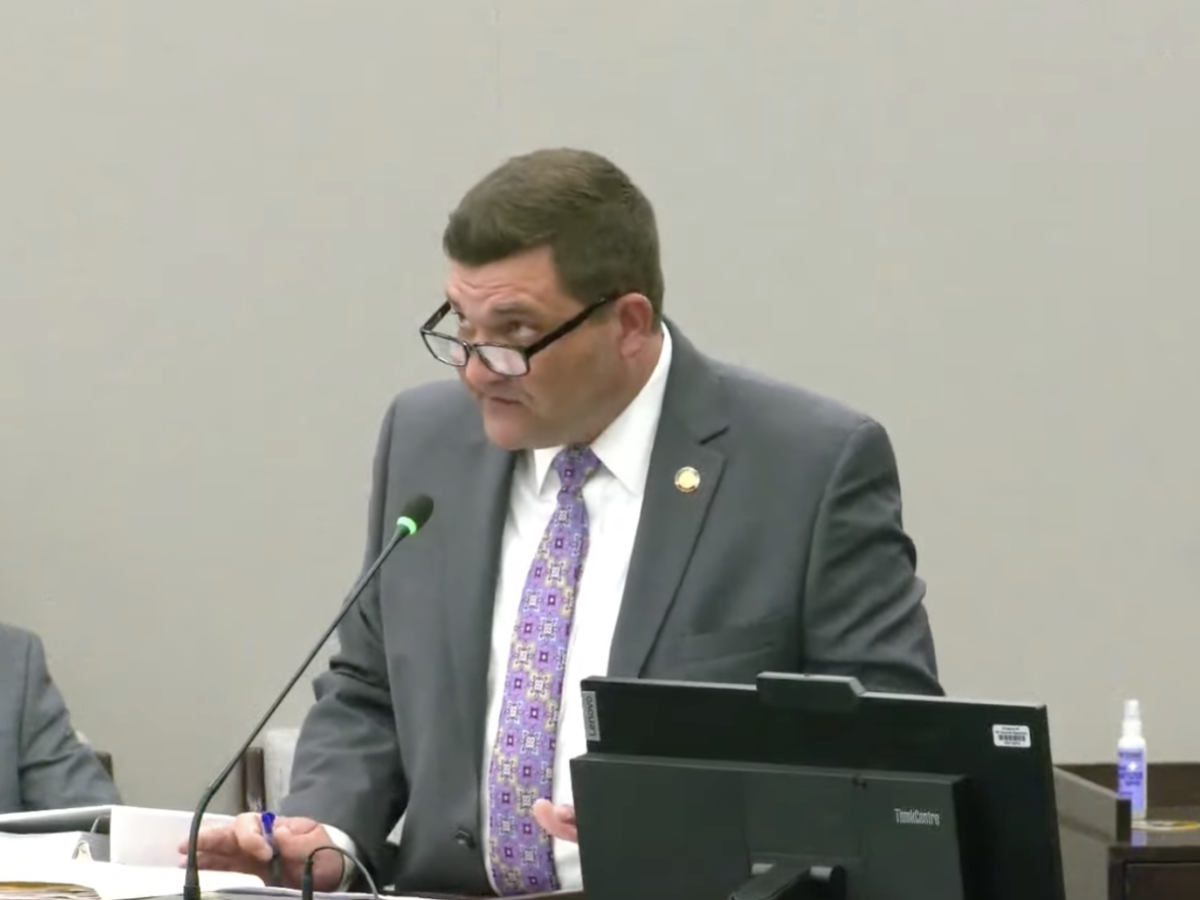

|
|
Update 7:23 p.m. June 9, 2021: The bill passed the full House 74 to 34. Since changes were made by the House after the bill already passed the Senate, it now has to return to the Senate for a concurrence vote.
A House revision of a Senate bill taken up in a committee Wednesday could be a financial boon to the state’s public schools, but it might come with a trade-off for the State Board of Education.
When Senate Bill 654 passed the Senate, it contained a number of waivers the Board is seeking from lawmakers to relax accountability requirements around standardized testing due to COVID-19. When House lawmakers took it up in an appropriations committee Wednesday, it still had the waivers. However, it now also includes almost $360 million in federal dollars for education and a provision that would delay by one year implementation of the controversial social studies standards passed by the Board earlier this year.
Rep. Jeffrey Elmore, R-Wilkes, presented the revisions to the bill, noting that the Board is still working on supporting documents for the standards and that implementation is supposed to begin in August.
“It would be an extreme burden on your teachers dealing with social studies to deal with that fast of a timeline,” he said.
The social studies standards were the focus of a lot of opposition from Republicans on the Board and sparked increased scrutiny of how the Board is thinking about and addressing equity. Much of the debate focused on the use of words such as “racism,” “discrimination,” and “identity.” The standards didn’t garner Republican Board member support even though those words had been changed from the original draft standard, which included the terms “systemic discrimination,” “systemic racism,” and “gender identity.”
Since the passage of those standards, House Republicans have passed a pair of bills that some opponents say take aim at the standards. Opponents say one of those bills, titled “Ensuring Dignity & Nondiscrimination/Schools,” will prevent the teaching of the real history of race and racism in the United States. Read more about it here.
Another bill would force schools and districts to make information available to the public on what instructional materials and activities are being used in classrooms. Read more about that here.
Neither bill has been heard yet by the Senate.
The provision in SB 654 related to the social studies standards can be seen in its entirety below. The stated rationale for the provision is to allow more time for content development and professional development opportunities “delayed due to COVID-19.”
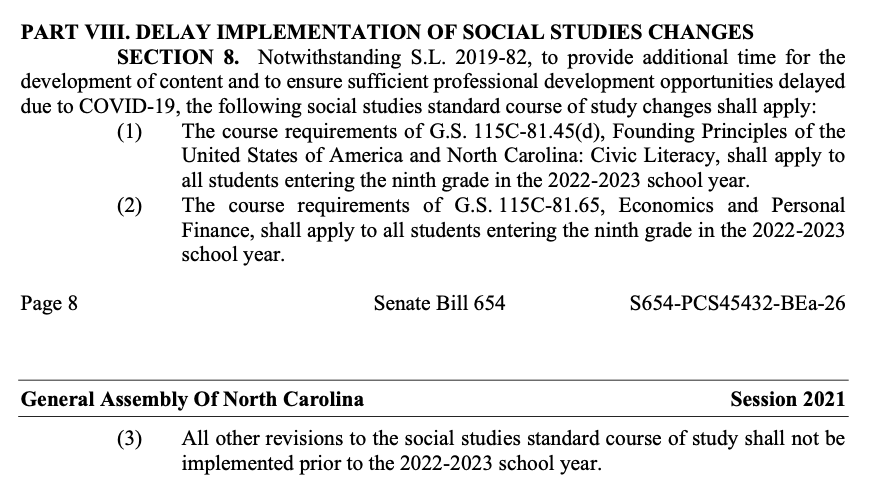

When asked if the state Department of Public Instruction (DPI) asked for the delay on the social studies standards, Elmore said “somewhat.” He didn’t clarify or elaborate on what that meant, instead going on to talk about all the materials related to the social studies standards that haven’t yet been completed. Those materials would help teachers develop their teaching plans for the fall and going forward.
“The turnaround for the teacher … in my opinion as a teacher, is unreasonable at this point,” he said.
State Superintendent of Public Instruction Catherine Truitt said that while a delay may be helpful, the way in which it is rolling out in this bill is not.
“I previously advocated for a delay in the adoption of history and civics standards earlier this session,” she said in an email statement. “While this proposed delay benefits the department to ensure we can provide the proper professional development and appropriate implementation of the new standards, as well as train our teachers for the new economic and personal finance course, I find it discouraging that it has unfolded at the eleventh hour.
“We need clarity as soon as possible. The State Board of Education is required to move forward with implementation of these new history and civics standards per current statutory requirements and local school districts will potentially have to adjust schedules for nearly all 400,000 high school students.”
While a bill solely focused on the social studies standards would likely get a quick veto from Democratic Gov. Roy Cooper, the money in this bill complicates matters. Here are some of the ways the nearly $360 million in federal COVID-19 relief will be spent if the bill passes:
- $100 million to provide teachers with an 11th month of salary. The teachers who receive this can “either work for an additional month following the school year or work additional hours during the school year amounting to up to one additional month of employment.” This is similar to something that Rep. Graig Meyer, D-Orange, has tried to implement in at least one previous session. This provision would, however, only apply to veteran teachers and teachers who received certain academic-growth related bonuses.
- $37.5 million for teacher and principal professional development in the science of reading.
- $36 million for grants to public school units for COVID-19-related needs, including for programs designed “to address learning loss and provide enrichment activities, such as for after-school and before-school programs, during the instructional year.”
- $36 million for grants to public school units for COVID-19 related needs, “including for in-person instruction summer programs to address learning loss and provide enrichment activities.”
- $21 million “to contract with a third-party entity for technology to mitigate cyberbullying, monitor student internet activity, monitor classroom educational devices, and assist with suicide prevention services.”
- $20 million to make sure every “public school unit” — districts, charter schools, lab schools, etc. — gets $400 per pupil in federal money.
- $18 million for principal and school improvement leadership team coaching and professional development in school districts.
- $17 million for a grant program that would help get “contracted school health support services” for public school units who need them. “Public school units receiving the funds shall contract with school health support personnel to provide additional physical and mental health support services for students,” the provision states. Additionally, the grants could be used for identifying and locating students “missing from public school units.”
- $13.2 million for the North Carolina Education Corps.
- $10 million for “a competency-based education platform that enables the development of credit by demonstrated mastery for students for grades seven through 12 for credit recovery or acceleration to address various education delivery methods during the COVID-19 pandemic.”
- $10 million “to support a common learning management system to be utilized for in-person and remote instruction for kindergarten through fifth grade for a period of up to three years. Funds may also be used for the kindergarten readiness programs based on the Science of Reading.”
- $10 million for a “Student Success Program to allow parents of eligible children to use federal funds intended to mitigate the negative impacts of COVID-19 towards allowable educational uses of their choice to address student learning loss and provide supplemental educational support.” The provision stipulates, however, that DPI make sure this use of the federal funds is consistent with the federal guidelines for this money.
That last provision would provide $1,000 grants and is supposed to go to students who come from households “with an income level not in excess of one hundred fifty percent (150%) of the amount required for a student to qualify for the federal free or reduced-price lunch program.”
These are all the allowable uses of the money in the Student Success Program:
- “Tutoring services provided by an educator licensed by North Carolina, a person with experience teaching in higher education, or a person who has a bachelor’s degree or graduate degree in the subject area in which tutoring is provided.”
- “Textbooks, curriculum, or other instructional materials.”
- “Therapies for children with disabilities from a licensed or accredited practitioner or provider, including, but not limited to, occupational, behavioral, physical, and speech language therapies.”
- “Educational programs or courses offered for a fee or pursuant to contract by a local educational agency, charter school, nonpublic school, institution of higher education, or career and technical education program.”
- “Fees for national standardized assessments, advanced placement examinations, examinations related to college or university admissions, or industry recognized certification examinations.”
Those are some of the big-ticket items in the bill. Among other things, the bill also delays implementation of kindergarten class size restrictions for next year, makes some temporary changes to teacher licensing, and modifies “provisions related to remote and virtual instruction.” You can see the bill in its entirety here and below.



